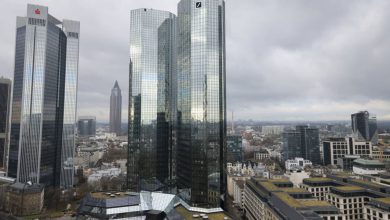Rushed rollback of EU green farming rules triggers dismay

The EU is not known for writing laws in haste.
But as farmers took to the streets this spring to protest red tape and police were pelted with eggs and manure dumped on city streets, policymakers suddenly discovered a way to speed up things – even if it means forgoing public debate or ignoring the evidence that is being done. proposed will do more good than harm.
Lawmakers in the European Parliament are expected on Wednesday to approve a European Commission proposal to dilute several requirements of the bloc’s more than 300 billion euro agricultural subsidy system, in a bid to cut red tape. These requirements – known in European jargon as “conditionality” – force farmers to protect the environment if they want public money.
The Commission took just a few weeks to draft the proposal, working at the request of national authorities and consulting only farmers subject to the rules. It has not carried out an impact assessment – a benchmark for quality legislation, according to its own rules – nor has it discussed with civil society groups representing the interests of the general public.
“The unraveling (of the CAP) will be done on the sly,” declares Green MEP Benoît Biteau. wrote on X. “In the end, farmers, nature and democracy lose. »
Of the four agricultural groups consulted by the Commission, two have since criticized the way the proposal was drafted, accusing the EU executive of using their participation in the consultation to justify changes that “will most likely lead to a reduction in environmental outcomes of the CAP and, ultimately, its legitimacy.
But while the rural vote could be crucial in June’s European elections, only left-wing lawmakers have chastised the Commission for its haste to unravel the green strands of the bloc’s farm subsidy budget.
“I don’t share this opinion,” said Italian center-right MP Herbert Dorfmann, who leads the European People’s Party, the largest group in parliament, on agricultural issues. “It is not for me to judge the Commission.”
Do it quickly at the expense of quality
The EU executive admits it had to be creative to move the proposal forward in record time, but says no rules were broken.
“We have farmers on the streets everywhere… we are in an emergency situation and so we have to act accordingly,” Michail Dimitru, deputy director general of the Commission’s DG AGRI, said last week in the agricultural sector .
“This is a fairly balanced and focused proposal,” he added.
However, privately, Commission staff members fear that such rapid and flexible policymaking could become the new norm, particularly with regard to abandoning environmental regulations, as EU institutions seek to become more supportive to the industry after the June elections.
“Some of us have spent years on these rules, and they are being dismantled in a matter of weeks,” said an official who, like others involved in this story, requested anonymity. “It’s discouraging and frustrating.”
Another official said it was disheartening to see the EU executive bowing to pressure from farmers – and national governments keen to quell agrarian discontent.
“The entire political process has been held hostage,” the official said.
To each their own
Green lawmakers and civil society groups have accused policymakers of catering to the needs of the agricultural sector at the expense of everyone else.
The industry, however, has opposed such claims.
Patrick Pagani, deputy director of the EU’s biggest agricultural and cooperative lobby, Copa-Cogeca, told POLITICO they were not jeopardizing the CAP’s environmental performance.
“The proposed changes (…) represent an adjustment of the current provisions and not new rules (…) They have no impact on the set objectives of the CAP, which remain unchanged, striking a balance between economic , environmental and social,” he said.
His colleague Christiane Lambert, president of Copa, the group’s agricultural arm, welcomed the measures – part of the political demands her group had presented to the Commission – saying the EU had finally started to listen to farmers.
“It is important that during this term we continue to address farmers’ concerns and offer them the flexibility they need to implement the CAP,” she wrote on X.
But even though most European governments support these measures, behind the scenes they are less convinced that they will make much of a difference to farmers.
An EU diplomat said the proposed changes simply removed the “notion of obligation” that farmers comply with ecological requirements.
This is because the CAP is notoriously complex and convoluted, making conditionality rules incredibly difficult to apply, the diplomat explained.
“Farmers don’t really follow them anyway. »
Politices





